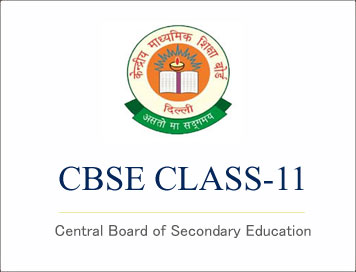CBSE Class-11 Syllabus 2018-19 (Biotechnology)
Disclaimer: This website is NOT associated with CBSE, for official website of CBSE visit - www.cbse.gov.in
CBSE Class-11 Syllabus 2018-19 (Biotechnology)
An unprecedented growth of human knowledge in the field of Biological Sciences coupled with equally significant developments in the field of technology have brought significant changes into existing social and economic systems. The emerging field of Biotechnology is likely to further enhance the applications of Science and Technology in the service of human welfare. Modern Biotechnology processes encompass a wide range of new products such as antibiotics, vaccines, monoclonal antibodies and many more. Furthermore, developments in recombinant DNA technology have yielded numerous new useful products in the fields of healthcare and agriculture. The present syllabus takes care of all these aspects. Due emphasis has been laid on familiarizing the learners with the fundamental concepts, basic techniques and their applications. It is expected that the knowledge gained through the study of different topics and the skills acquired through the prescribed practical work will make the learners competent to meet the challenges of academic as well as professional courses after studying the subject at senior secondary stage.
Objectives :
- The broad objectives of teaching Biotechnology at senior secondary level are:
- To help the learners know and understand basic facts and concepts of the subject at elementary stage.
- To expose the students to different basic processes and basic techniques used in Biotechnology.
- To familiarize the learners to understand the relationship of the subject to health, nutrition,environment, agriculture and industry, etc.
- To develop conceptual competence in the learners so as to cope up with professional courses in future career.
- To acquaint students with different applications of Biotechnology in everyday life.
- To develop an interest in students to study biotechnology as a discipline.
COURSE STRUCTURE :
| Unit | Title | No.of Period | Marks |
| I |
Biotechnology: An overview |
20 | 05 |
| II |
Molecules of Life |
50 | 20 |
| III |
Genetics and Molecular Biology |
50 | 20 |
| IV |
Cells and Organisms |
60 | 25 |
|
Practicals |
60 | 30 | |
| Total | 240 | 100 |
Unit-I Biotechnology: An overview
Chapter 1: Biotechnology: An Overview
Historical Perspectives, Technology and Applications of Biotechnology, Global market and Biotech Products, Public Perception of Biotechnology, Biotechnology in India and Global Trends
Unit-II Molecules of Life
Chapter 1: Biomolecules: Building Blocks
Building Blocks of Carbohydrates - Sugars and Their Derivatives, Building Blocks of Proteins - Amino Acids, Building Blocks of Lipids - Simple Fatty Acids, Sphingosine, Glycerol and Cholesterol, Building Blocks of Nucleic Acids - Nucleotides, Biochemical Transformations
Chapter 2: Macromolecules: Structure & Function
Carbohydrates - The Energy Givers, Proteins - The Performers, Enzymes - The Catalysts, Lipids and Biomembranes - The Barriers, Nucleic Acids - The Managers
Unit-III Genetics and Molecular Biology 20 Marks 50 Periods
Chapter 1: Concepts of Genetics
Historical Perspective, Multiple Alleles, Linkage and Crossing Over, Genetic Mapping, Gene Interaction, Sex-Linked Inheritance, Extranuclear Inheritance, Quantitative Inheritance, Genes at the Population Level
Chapter 2: Genes and Genomes: Structure and Function
Discovery of DNA as Genetic Material, DNA Replication, Fine Structure of the Genes, From Gene to Protein, Transcription – The Basic Process, Genetic Code, Translation, Regulation of Gene Expression, Mutations, DNA Repair, Human Genetic Disorders, Genome Organization
Unit IV: Cells and Organisms
Chapter 1 The Basic Unit of Life
Cell Structure and Components, Tissues and Organs, Stem Cells, Biodiversity, Organization of Life
Chapter 2: Cell Growth and Development
Cell Division, Cell Cycle, Cell Communication, Nutrition, Gaseous Exchange, Internal Transport,Maintaining the Internal Environment, Reproduction, In Vitro Fertilization, Animal and Plant Development, Immune Response in Animals, Programmed Cell Death, Defense Mechanisms in Plants
Click Here To Download Full Syllabus
Courtesy: CBSE
